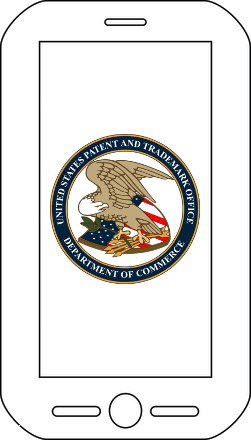
Summary: Some of the very latest reports about patents in the US and how these impact the market (costs, availability, and viability of Free/Libre Open Source software)
THE patent landscape in the US is changing. It's changing for the better (for inventors/creators, not for lawyers who prey on them). Today we'd like to share a few of the latest headlines, then go a little further back in time and document the improvements as noted so far this summer.
Cisco and Arista
CRN has just published
this article about the latest twist in a case that was
mentioned here the other day (we had been covering it for much longer than that [
1,
2,
3,
4]).
When patents reduce the choice that exists for people to choose from in the supposedly free market, what does that tell us about those patents? We have long argued that this case demonstrates the pitfalls of the
ITC and this article explains why:
The contentious legal battle between networking rivals Cisco and Arista Networks continues to rage on as the International Trade Commission (ITC) Thursday upheld its decision to ban the importation and sale of some of Arista's networking products into the United States.
Shares of Arista stock traded down more than 3 percent at $151.81 Friday afternoon after the ITC denied the vendor's request to lift the ban.
Cisco Senior Vice President, General Counsel Mark Chandler said the ITC send "a strong message to Arista that its corporate culture of copying" must stop.
So they exert financial control/pressure over smaller rivals. Using patents that
still aren't fully tested (the ITC's scope of assessment is limited). See this
financial report titled
"Arista Sags: Q3 ‘Uncertainty’ Rises with ITC Setback, Says Wells Fargo" and think what would happen if Cisco's patents turn out to be invalid or inadequate for justifying such an embargo. Would there be compensation? No.
Consequences of giants like Cisco using patents to embargo their rivals' products may, in some people's mind, seem justified. But how about going through a proper process in a court, potentially with appeals,
before applying such blanket bans? What is happening to due process in this age of ITC gun-jumping?
MPEG-LA Becoming More Obsolete as MP3 Gets Liberated
MPEG-LA is a subject we last
tackled yesterday. Having run out of 'MP3 tax', MPEG-LA is currently trying to obtain rights to a tax on life (or genome). In the mean time, MP3's 'liberation' so to speak (from software patents) means that
browsers add MP3 support as a matter of standard; even lesser-known browsers:
Chromium, the skeletal open-source browser at the core of Chrome, Opera, Vivaldi, Brave and a few other browsers will receive support for the automatic playback of MP3 files.
"We have approval from legal to go ahead and move mp3 into non-proprietary codecs list," said a project manager tasked with managing Chromium's multimedia components.
Until now, Chromium — and indirectly Chrome — has supported various audio formats such as OGG, FLAC, Opus, WAV, PCM, and others.
We previously criticised Mozilla for playing along with MPEG-LA; for video compression formats many of the same problems remain.
The 'Phone Tax'
According to
ip.finance [found via Francisco Moreno/Keith Mallinson], "Apple is paying a total of between $12.50 and $25.00 per iPhone in fees for licensing from all cellular patent licensors. That is equal to between two percent and four percent of iPhone prices. Licensing fees as a percentage of consumers’ total cellular expenditures over a smartphone's approximate two-year service life, including operator service fees averaging around $40 per connection per month in the US, for example, are considerably lower."
No wonder such phones have become
so grossly overpriced.
We rarely come across these numbers. Various figures from Qualcomm and BlackBerry (to be covered separately later today) shed light on how much patent tax is paid for the hardware alone; Another
new report (published this morning) speaks of "when licensors come knocking" and there's a portion of it that deals with
Motorola's Microsoft dispute as follows:
The issue of standard patent licensing has been litigated heavily in other sectors, with the most notorious case stemming from Microsoft's use of a Motorola-owned WiFi standard for use in the Xbox 360 gaming console. Motorola demanded Microsoft pay them 2.25 percent of the $399 retail price of the system, which translated to between $8 and $9 per console sold.
When the parties couldn't reach an agreement, Microsoft sued Motorola in 2010 for breach of contract tied to the patent under requirement that standard patent holders must negotiate with a fair, reasonable and non-discriminatory pricing for the license. Three years later, a federal judge ruled that Motorola violated the pricing requirement and determined Microsoft pay Motorola 3.471 cents per unit sold. Microsoft sold 84 million Xbox 360s, paying Motorola roughly $2.9 million for the WiFi license, as opposed to the nearly $700 million they would have owed under Motorola's initial demand. However, the litigation became so nasty, and international, that Microsoft ended up paying $400 million to move a manufacturing facility out of Germany.
We wrote a lot about that at the time. The main concern was, the supposedly reasonable and non-discriminatory (RAND) pricing made Free software inadequate a choice. RAND (or FRAND), unlike with a Z (for zero cost) would be inherently not compatible with the endless, cost-free distribution of software among peers. This is especially a problem when it comes to software because software, unlike hardware (device/gadget), need not involve manufacturing and shipping costs. Thankfully, however, software patents are on the demise in the US -- a subject we'll deal with in our next post.
⬆

![]()